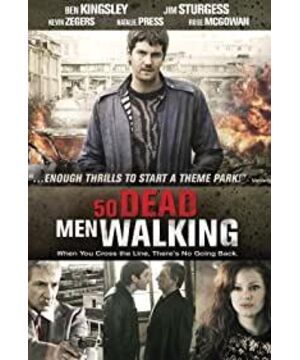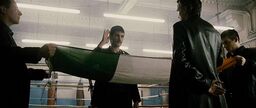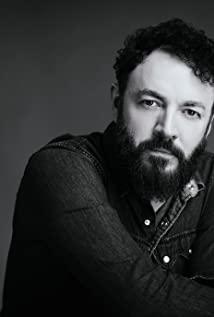In July 2005, the Irish Republican Army (IRA) announced that it would lay down its arms and join the peace process; on September 26, the International Independent Commission responsible for overseeing the disarmament of the IRA announced that the IRA had been completely disarmed. But the "true IRA", formed by some radical Northern Irish fighters who broke off from the IRA, is still making waves. On August 15, 1998, the organization launched an attack on the city of Omag in Northern Ireland, killing 29 people and injuring more than 250 people; in March this year, it returned to the arena and declared responsibility for the attack on the British army base in Northern Ireland, trying to set off another attack. A wave of terror.
In 1919, on the basis of the nationalist military organization "Irish Volunteers", the Irish Republican Army was established with the purpose of establishing an independent Ireland, and it became a notorious terrorist organization in 1939. With this as the theme or background, European film artists and directors have made a large number of excellent films: such as "In The Name Of The Father" (1993), "Pride" (Michael Collins, 1996), "Blood" Sunday" (Bloody Sunday, 2002), "The Wind That Shakes the Barley" (2006), won the Oscar for Best Picture, Berlin Golden Bear, Cannes Palme d'Or and many other awards.
In 2009, the British-Canadian co-production Fifty Dead Men Walking was a hit before it was released: the film was based on the 1998 autobiography of British spy Martin McGartland of the same name. On the grounds of violating his moral rights, he plans to use legal means to prevent the film's release.
The plot setting of "Fifty Living Dead" is similar to "Infernal Affairs", which tells the story of British spy Martin infiltrating the IRA as an undercover agent and saving the lives of 50 British soldiers. The addition of elements makes it even more thrilling.
Martin, who was peddling women's underwear on the streets, was caught by the police because of his self-reliant qualities. This was an irony for the young people of Northern Ireland at that time. As an undercover police officer, in addition to a huge increase in income, Martin also faces blood and tears, as well as difficult choices about whether to betray his childhood playmate and how to keep his wife, children and children away from fear. When Martin hugged his wife tightly as he apologized, they all read the same thing in each other's eyes: fear.
The purges within the IRA, the ubiquitous, pervasive, and indiscriminate terrorist attacks on military/civilian targets, have put the IRA, civilians, and military police in a state of high tension.
After his identity was exposed, for the safety of his family, Martin had to abandon his wife and children and live an anonymous and secluded life. Martin, in real life, was shot six times in front of his Whitley Bay home in 1998 and survived. The film reproduces this scene, and if you count it carefully, the assassin did shoot Martin six times. The director is very sincere about details like this.
I've seen some violent movies, but in "Fifty Living Dead", the ruthlessness of the IRA to liquidate traitors and undercover agents is still impressive. This also paved the way for Martin's later reluctance to experience the torture of the IRA, and he chose to commit suicide by jumping off the building to escape.
The development trajectory of the Irish Republican Army is closely related to the political situation and counter-terrorism situation in the UK and the world.
On April 2, 1982, Argentine President Galtieri ordered troops to occupy the Malvinas Islands, and the Falklands War broke out; on April 3, the United Nations Security Council passed the SCR502 resolution, calling on Argentina to cease fire and withdraw its troops from the Falklands. Refused; British Prime Minister Margaret Thatcher, known as the Iron Lady, quickly formed a Royal Navy task force and recovered the Falklands on June 20.
The small-scale Battle of the Falklands gave the IRA a big blow psychologically. Although the glory and glory of the "Empire on which the Sun Never Sets" is no longer there, for the sake of the small Falkland Islands, the United Kingdom disregarded the huge political and military risks, went on an expedition of thousands of miles, and fought against Argentina, so tough, how could it be because of the small , The Irish Republican Army, which is not supported by the international community, abandons the great rivers and mountains of Northern Ireland? Margaret Thatcher's iron fist has led some IRA diehards to consider the possibility of peacefully participating in the Northern Ireland political process.
Patience always has a limit. Fear is an unsustainable force, and it is a difficult problem that terrorist organizations cannot solve. After countless bloody storms, people have become more and more aware of the value of peace and dialogue. Some tough problems, if courage, sacrifice and wisdom are difficult to solve, might as well leave time to give peace a chance first. (Originally published in Xinmin Weekly)
View more about Fifty Dead Men Walking reviews









